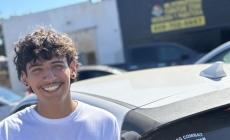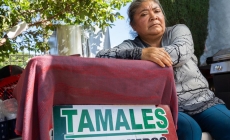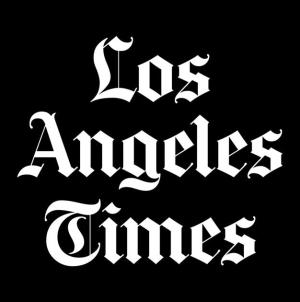-
30 hurt when car slams into crowd in Hollywood - 21 hours ago
-
Astronomer CEO Andy Byron Placed on Leave After Video at Coldplay Concert Exposes Alleged Affair - 1 day ago
-
Blood in the Streets and Death in the Air: Residents Survey Damage in Syrian City - July 17, 2025
-
Army vet calls for investigation after being detained for three days in ICE raid - July 17, 2025
-
Tariffs Push Up Prices, and the Supreme Court’s ‘Shadow Docket’ - July 16, 2025
-
ICE arrested her selling tamales at Lowes. Then she suffered a heart attack. ‘I told them: I can’t breathe’ - July 14, 2025
-
The Royal Box: Who’s in Wimbledon’s Most Exclusive Seats? - July 13, 2025
-
David Gergen, Adviser to Presidents and Political Commentator, Dies at 83 - July 12, 2025
-
Federal judge temporarily halts alleged indiscriminate immigration stops - July 12, 2025
-
Coal, the Last Survivor of Canada’s Parliament Hill Cat Colony, Dies - July 10, 2025
Dick Schlosberg dead: Former L.A. Times publisher was 79
Former Times publisher Richard T. “Dick” Schlosberg III, who led the newspaper during an era that saw double-digit profits and the emergence of the internet, which would eventually decimate the industry, died Wednesday in San Antonio. He was 79.
The cause was brain cancer, according to his son, Dr. Richard T. Schlosberg IV.
Schlosberg spent a decade at The Times, arriving from the Denver Post in 1988 to serve as president and retiring as publisher in 1997. The paper was then the flagship of the Chandler family’s Times-Mirror chain and the nation’s second-largest metropolitan paper with a newsroom of 1,500 journalists and a circulation that topped 1 million. Reporters flew first class and Picasso lithographs adorned the walls of an executive dining room.
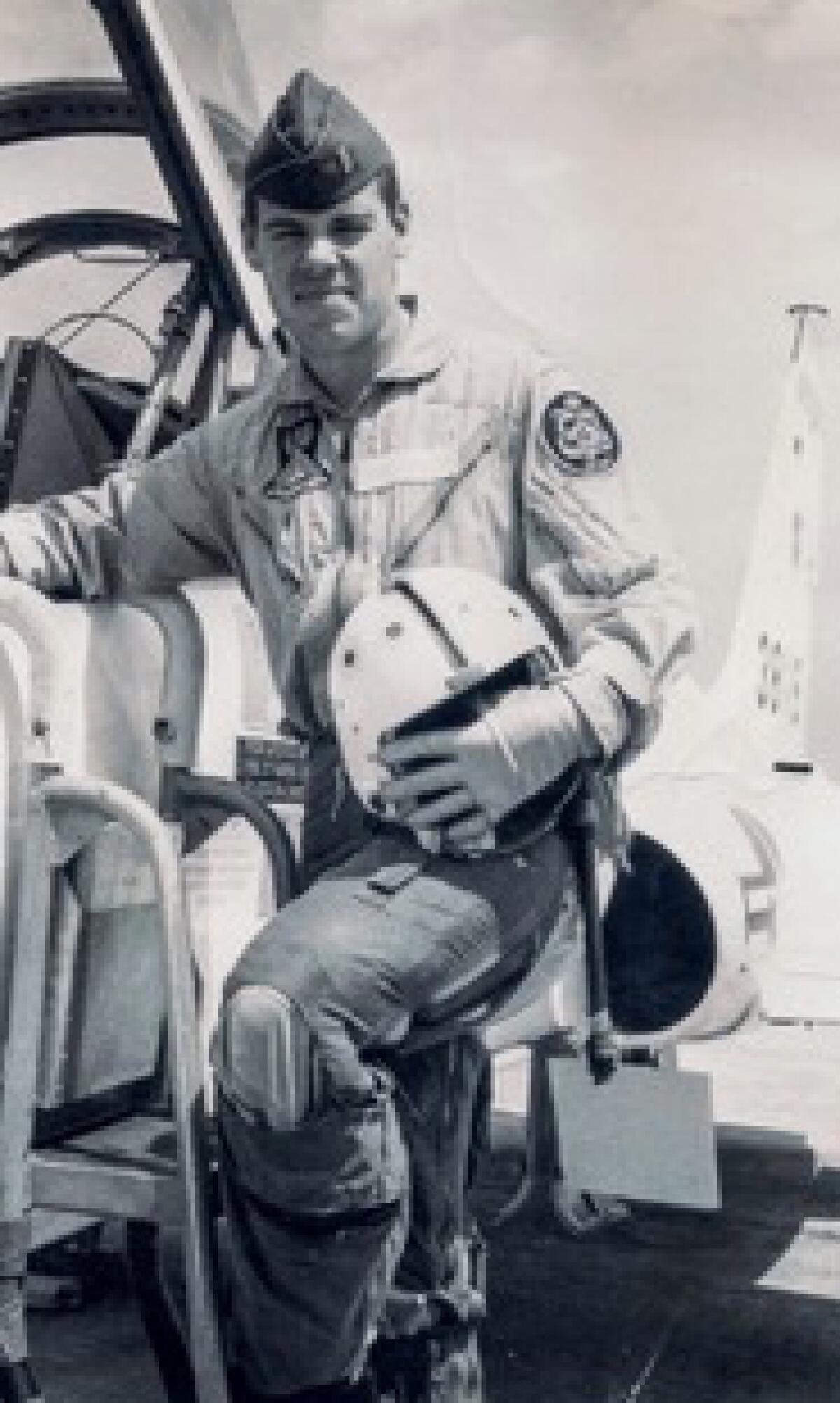
Schlosberg in an undated photo. He graduated from the U.S. Air Force Academy.
(Schlosberg family)
“There are no bad days as publisher of the L.A. Times,” Schlosberg said in 1997. “There are good days and great days.”
To celebrate blockbuster ad revenues in the mid-1990s, The Times rented out the House of Blues on the Sunset Strip and hired the Laker Girls to perform. Schlosberg and then executive editor Shelby Coffey performed “Wild Thing” backed by a band.
“We weren’t without our troubles at various times and having to cut and squeeze, but certainly looking back on it… it was quite a high point,” Coffey said.
In one indication of the prestige afforded Times brass in that era, actor and singer Barbra Streisand invited Coffey and Schlosberg and their wives to her home for a dinner with actor Warren Beatty, which the former editor recalled as “a pleasant evening.”
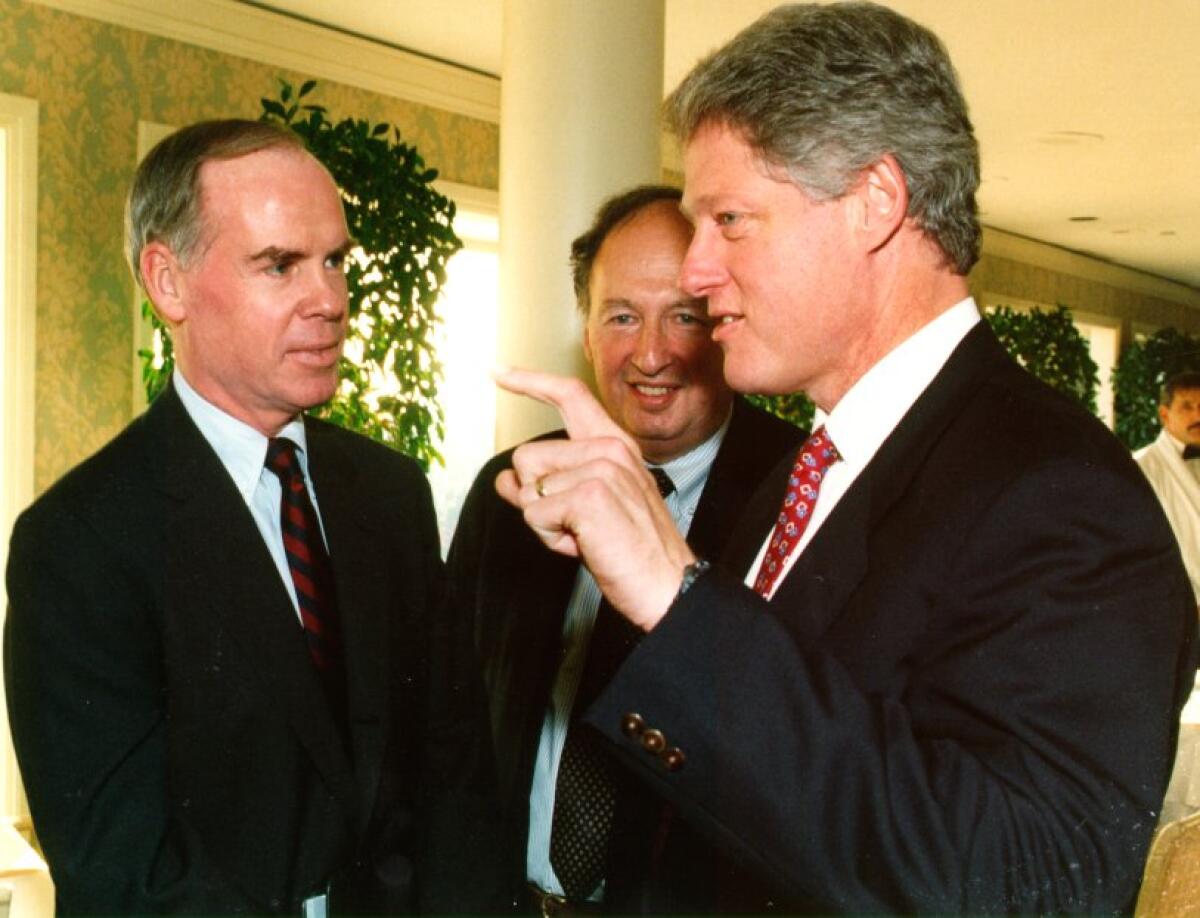
Then Los Angeles Times publisher Richard T. Schlosberg, left, with David Laventhol, center, and President Clinton in 1994.
(Los Angeles Times History Center)
Meanwhile, the clouds gathered in Silicon Valley. Harry Chandler, then heading up business development, traveled to Palo Alto in 1995 to meet two Stanford graduates, David Filo and Jerry Yang, seeking funding for a new tech company.
On his return, he told Schlosberg and Coffey: “I need an hour to tell you what the internet is and why we should buy a company called Yahoo.”
The Times offered $1.6 million for about half the nascent company — an investment that would have drastically altered the newspaper’s history — but the Yahoo founders backed out.
Schlosberg was known for showing consideration to rank and file employees. He banned smoking in the Denver newsroom in the 1980s, citing the danger to nonsmokers, his son recalled, and in L.A., he sought out input for big decisions from low-level employees.
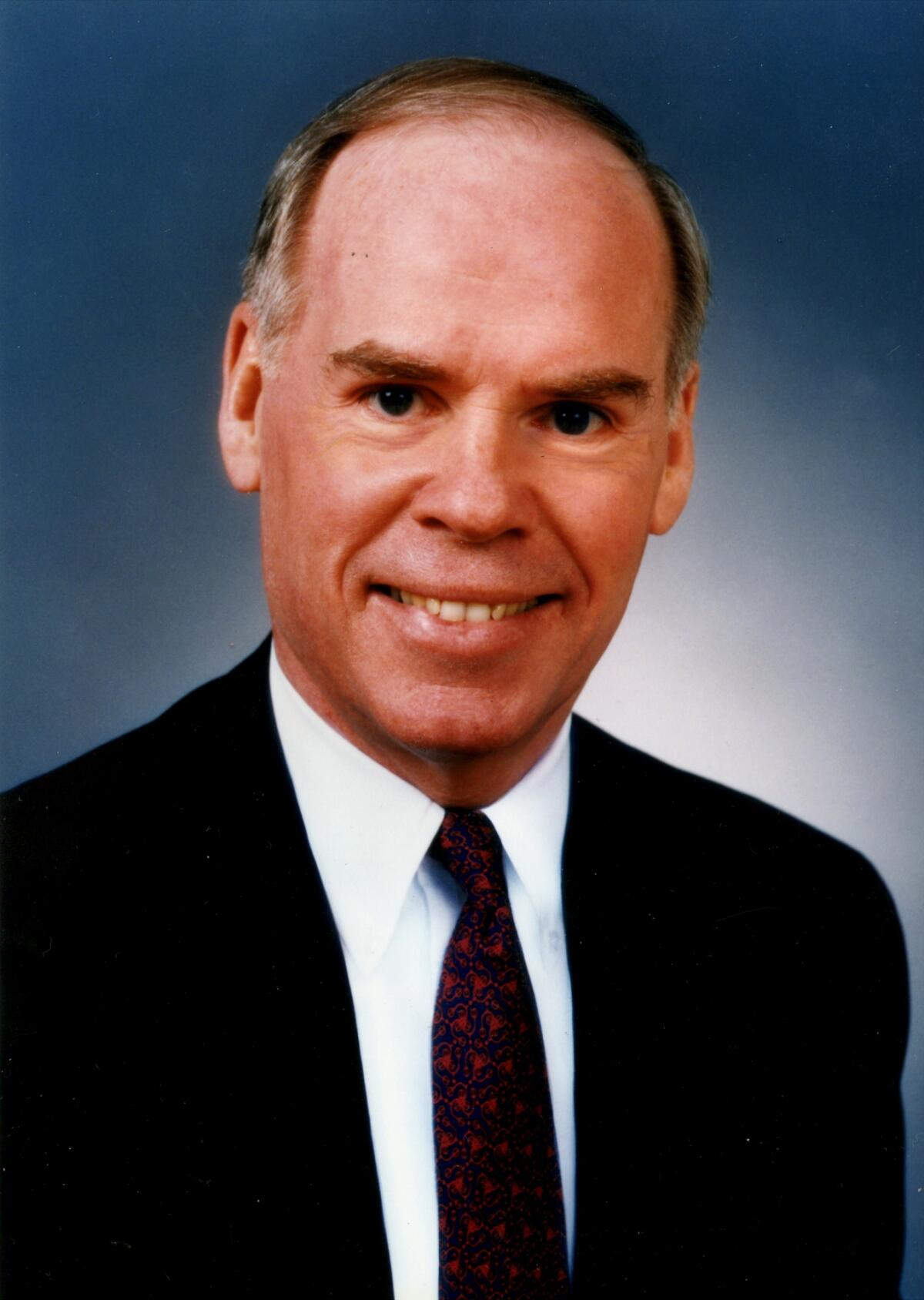
Schlosberg in 1996.
(Lee Salem Photography)
“He was a person who would always go to the source of information. He didn’t go through a typical chain of command in a way,” said Dickson Louie, who worked under him at The Times.
During Schlosberg’s tenure, The Times won Pulitzer Prizes for its coverage of the 1992 L.A. riots and the 1994 Northridge earthquake and was a Pulitzer finalist nine times.
The son of a World War II pilot, Schlosberg was born in 1944 in Ardmore, Okla., and graduated from the U.S. Air Force Academy. He served two tours of duty in Vietnam, where he flew more than 200 combat support missions, according to an obituary in the San Antonio Report. He received an MBA from Harvard before beginning a newspaper career.
Following his retirement from The Times, he served as CEO of the David and Lucile Packard Foundation, the Los Altos-based charity set up by the co-founder of Hewlett-Packard and his wife.
He is survived by his wife of 58 years, Kathy, his son and his daughter Deb Rich Herczeg, as well as five grandchildren and two great-grandchildren.
After he left The Times, Schlosberg followed with concern as the paper cycled through different owners and many rounds of layoffs. Then-parent company Tribune filed for bankruptcy in 2008 and the newsroom dwindled below 400 journalists before the Soon-Shiong family returned the paper to local ownership in 2018.
Schlosberg and four others formed a committee to advocate for retired Times-Mirror employees and spent 15 years fighting for money due them under deferred compensation plans.
“It was on principle,” said former Times general counsel William Niese, who also worked on the committee. “Dick Schlosberg was a very wealthy man and he didn’t need to do it at all.”
Employees eventually collected about a third of what was owed them through the bankruptcy proceedings, Niese said.
Source link


